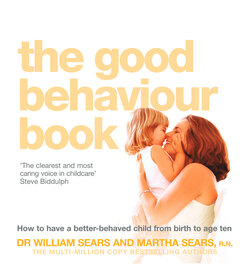Читать книгу The Good Behaviour Book - Марта Сирс - Страница 64
becoming interdependent
ОглавлениеMany child-rearing theories teach that a prime parenting goal is to get the child to be independent. This is true, but gaining independence is only part of becoming an emotionally healthy person. A child must pass through three stages:
• Dependence: “You do it for me.” The infant under one year of age is totally dependent on his parents.
• Independence: “I do it myself.” During the second year, the exploring toddler, with the encouragement of parents, learns to do many things independent of parents.
• Interdependence: “We do it.” This is the most mature stage. The child has the drive to accomplish a feat by himself but has the wisdom to ask for help to do it better. For a child to have the best chance of becoming an emotionally healthy person, she should be encouraged to mature through each of these stages gradually. Getting stuck in the dependent stage is as crippling as being forced out of it too soon. Remaining in the independent stage is frustrating. Maturing into interdependence equips children with the ability to get the most out of others, while asking the most of themselves.
Interdependence means the parent and child need each other to bring out the best in each other. Without your child challenging you as he goes through each stage, you wouldn’t develop the skills necessary to parent him. Here’s where the connected pair shines. They help each other be the best for each other.
Learning interdependence prepares a child for life, especially for relationships and work. In fact, management consultants teach the concept of inter-dependence to increase productivity. The ability to know when to seek help and how to get it is a valuable social skill that even a two-year-old can learn: “I can do it myself, but I can do it better with help.”
Throughout all stages of development a child goes from being solitary to being social, from wanting to be independent to wanting to be included. In fact, going back and forth from oneness to separateness is a lifelong social pattern among interdependent people. You want your child to be comfortable being alone and with other people, and which state predominates depends on the child’s temperament. Inter-dependence balances children who are predominantly either leaders or followers. The independent individualist may be so tied up in himself that he misses what the crowd has to offer. The dependent child is so busy following the crowd that he never gets a chance to develop leadership.
Learning to be interdependent ties in with the child learning to be responsible. When children get used to seeking help from other persons, they naturally learn to consider the effects of their behaviour on others. Truly happy and healthy persons are neither dependent nor independent; they are interdependent.
Defiance. Understanding why your toddler says no helps you not to be threatened by this toddler behaviour. Your toddler is not actually being defiant or stubborn. He is not saying, “I won’t”; rather, he is saying, “I don’t want to.” Often he will give you two or three “nos” before he says, “OK”. Or he is experimenting, thinking, “What happens when I say no?” He is thinking, “I am into my thing now. This is my time, my space, and I have a right to it.” This behaviour is a normal part of your toddler’s struggle to develop a sense of self.
Around two, we would be met with a “No!” when we tried to remove a toddler from mischief, as if he perceived we were encroaching on the territory he had staked out. He was trying to see what power he had to enforce that right. During this stage, both parents and their toddlers need to learn a vital developmental lesson: the ability to give and take “no”. When a parent feels threatened by a toddler’s “no”, harsh words are likely to come: “Don’t you say that to me.” A confident parent will not perceive this as a threat to authority but rather as a healthy stage all toddlers need to go through. A mature adult does not react anxiously or punitively when the attachment-parented toddler says no. Instead, the parent calmly takes each situation as it comes and guides according to his or her wisdom.
